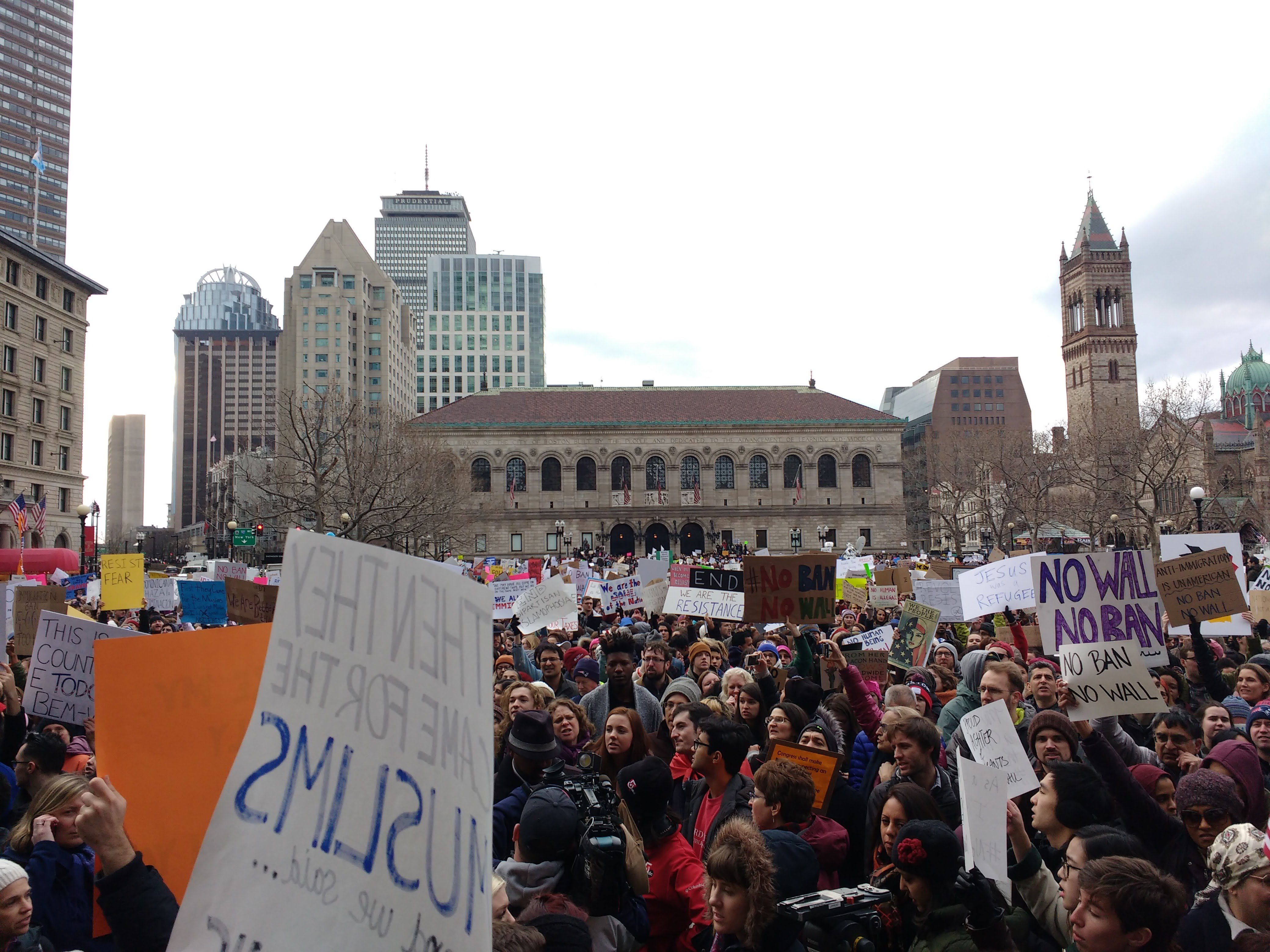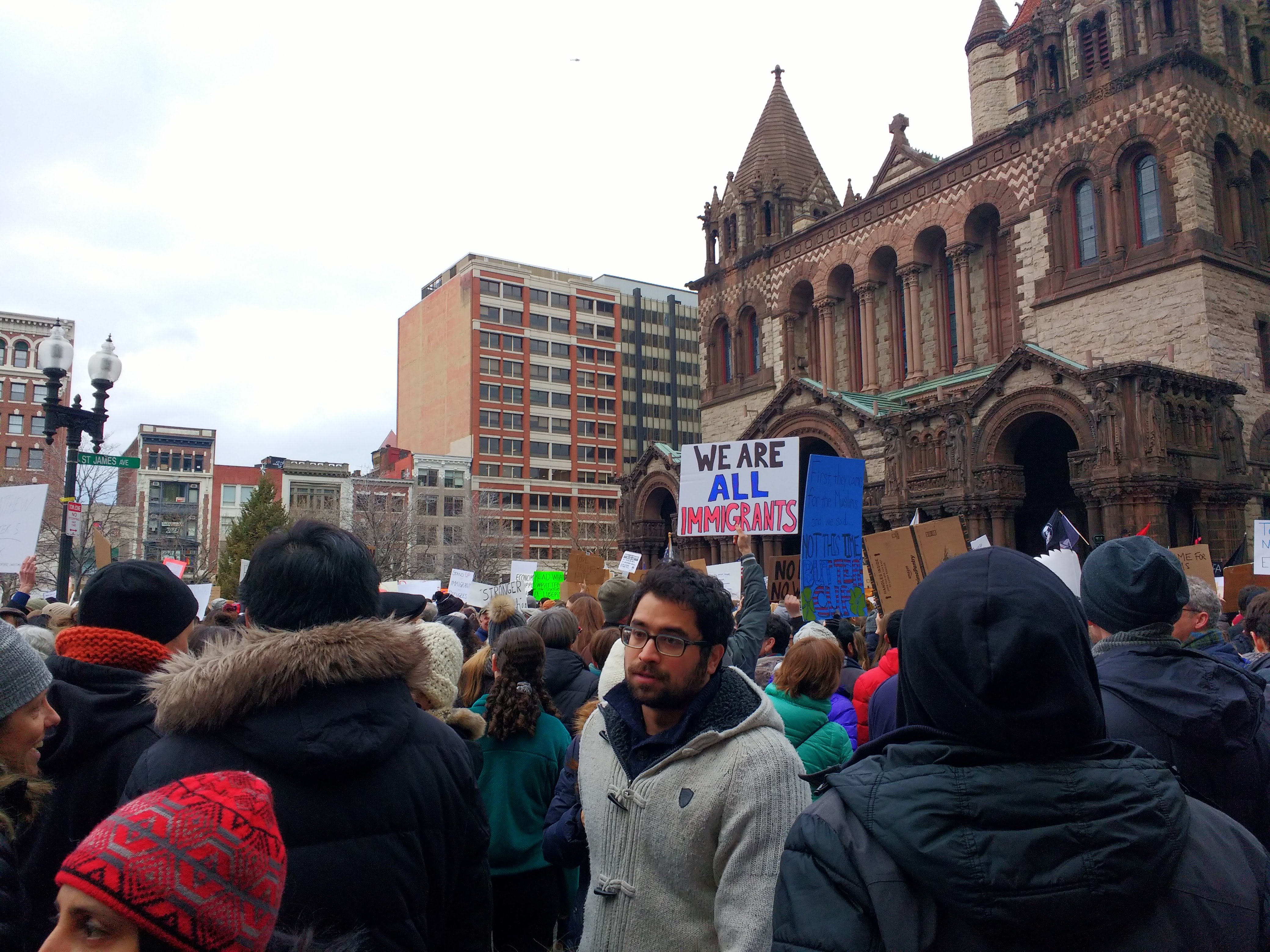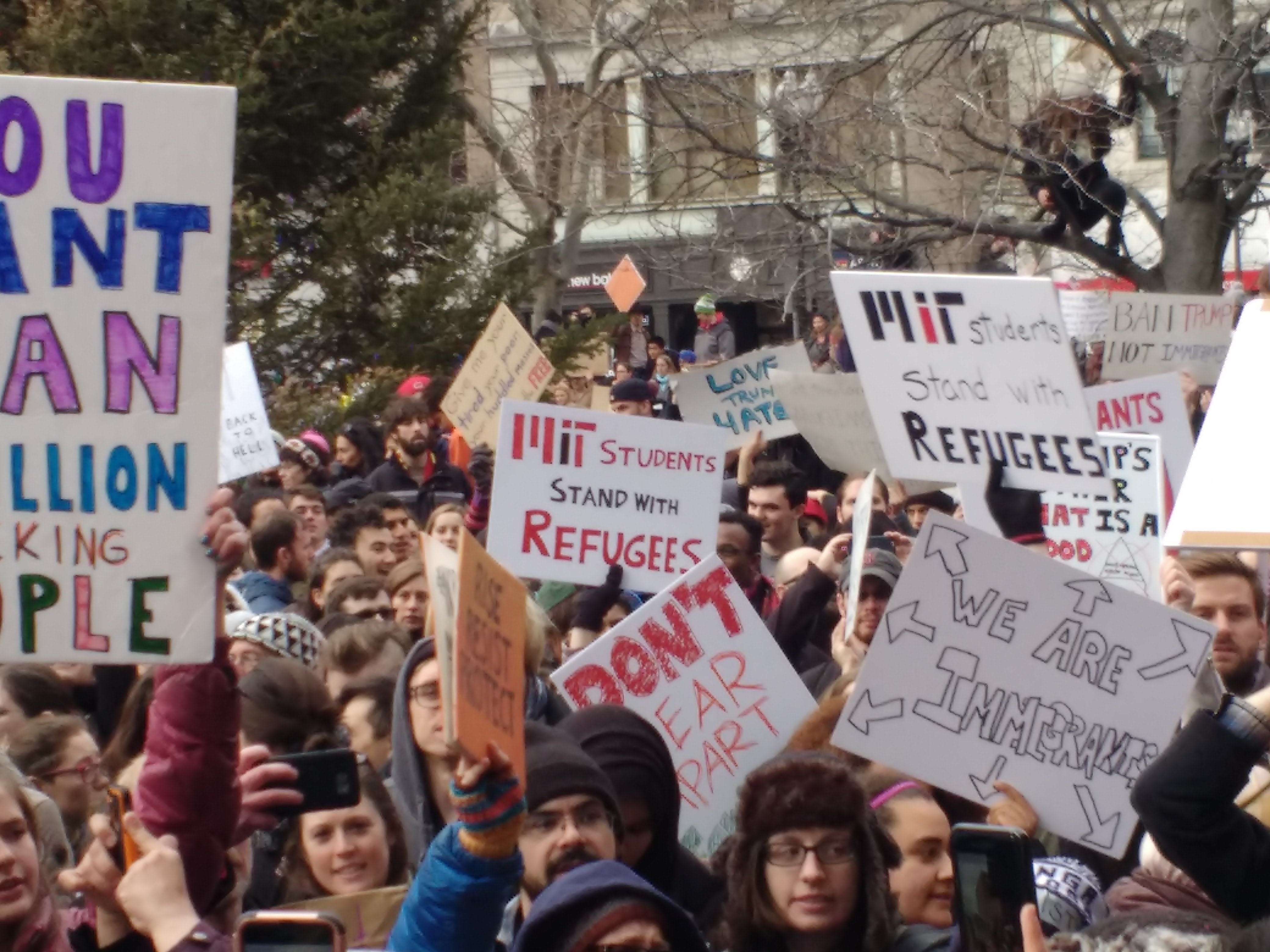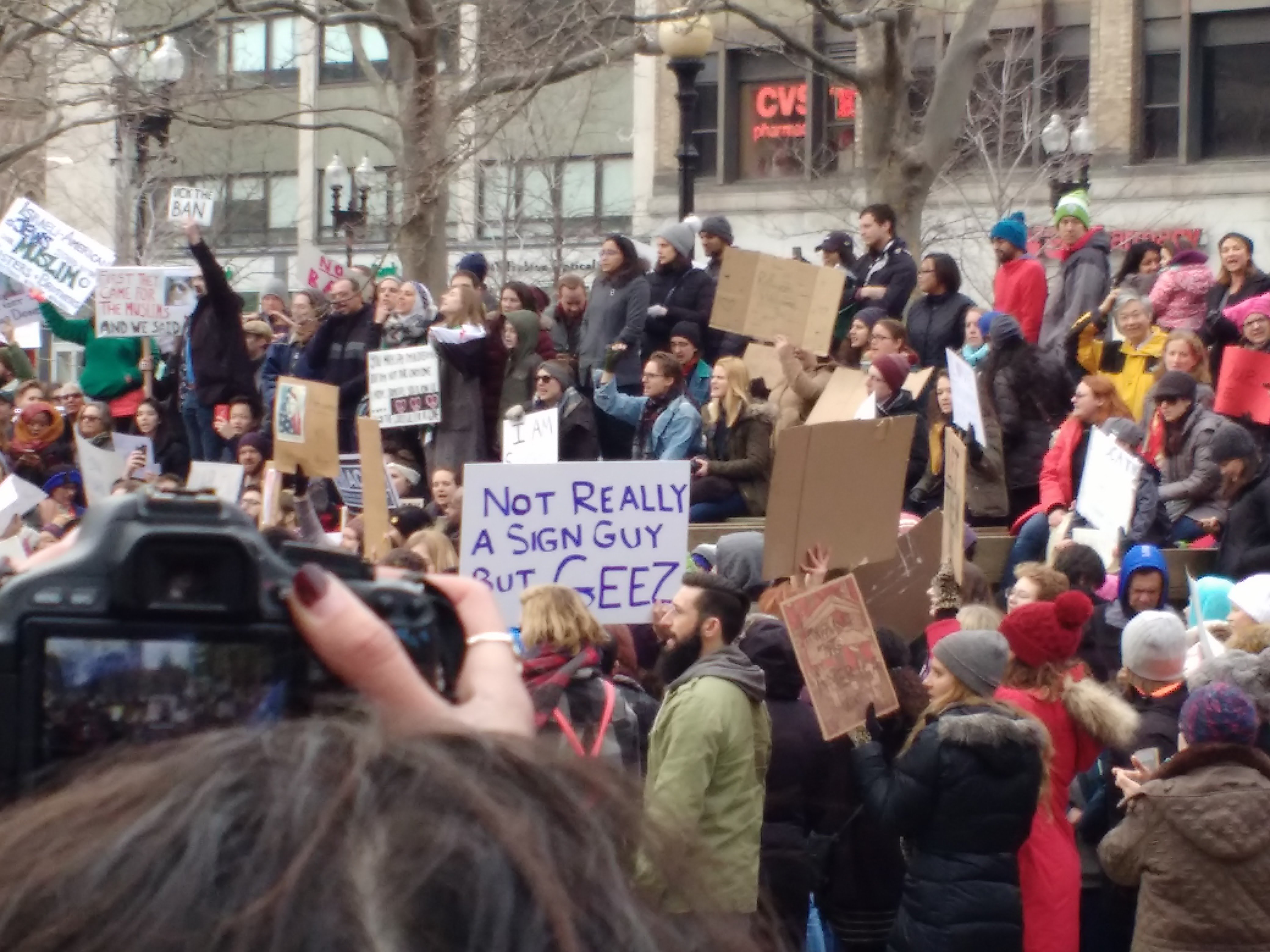MIT at Copley Square by Selam G. '18
Yet more photos of #NoBanNoWall protests in Boston, plus an update from President Reif.



 \
\

Protests erupted all over the country yesterday in response to Trump’s immigration freeze on seven nations. MIT has 38 students from Iran, 1 from Iraq, 5 from Syria, 2 from Sudan, and 1 from Somalia. At least one student from Iran was already denied boarding a flight back to the United States. Students (including yours truly) joined Boston’s protests in Copley Square.
I took all the photos above, and the following video, which I hope captures a bit of what it was like to actually be there:
This was the first time I really actively participated in a protest. My mother, from Nanjing, China, has a green card, and so when I initially heard about the ban I was saddened and concerned that even US residents could be shut out of the place they live and, in my mother’s case, called home for more than twenty five years. As a diverse community of immigrants (reflected beautifully in Vincent’s post on Unity), it’s been helpful and comforting to see so much of MIT come together in firm opposition.
President Reif emailed out the following institute-wide update on the situation and a reaffirmation of our values yesterday afternoon:
To the members of the MIT community,
First, an update:
I was hoping to write to you today with some uplifting news. Yet, as I write, we continue to push hard to bring back to MIT those members of our community, including two undergraduates, who were barred from the US because of the January 27 Executive Order on immigration. We are working personally with each of the affected individuals we are aware of. If you know of others who are directly affected, please inform us immediately so we can try to help.
Over and over since the order was issued, I have been moved by the outpouring of support from hundreds across our community. I could not be more proud, and I am certain that you join me in thanking everyone inside and outside of MIT whose extraordinary efforts have helped us address this difficult situation. We hope we can welcome everyone back to MIT very soon.
MIT, the nation and the world
I found the events of the past few days deeply disturbing. The difficulty we have encountered in seeking to help the individuals from our community heightens our overall sense of concern. I would like to reflect on the situation we find ourselves in, as an institution and as a country.
MIT is profoundly American. The Institute was founded deliberately to accelerate the nation’s industrial revolution. With classic American ingenuity and drive, our graduates have invented fundamental technologies, launched new industries and created millions of American jobs. Our history of national service stretches back to World War I; especially through the work of Lincoln Lab, we are engaged every day in keeping America safe. We embody the American passion for boldness, big ideas, hard work and hands-on problem-solving. Our students come to us from every faith, culture and background and from all fifty states. And, like other institutions rooted in science and engineering, we are proud that, for many of our students, MIT supplies their ladder to the middle class, and sometimes beyond. We are as American as the flag on the Moon.
At the same time, and without the slightest sense of contradiction, MIT is profoundly global. Like the United States, and thanks to the United States, MIT gains tremendous strength by being a magnet for talent from around the world. More than 40% of our faculty, 40% of our graduate students and 10% of our undergraduates are international. Faculty, students, post-docs and staff from 134 other nations join us here because they love our mission, our values and our community. And – as I have – a great many stay in this country for life, repaying the American promise of freedom with their energy and their ideas. Together, through teaching, research and innovation, MIT’s magnificently global, absolutely American community pursues its mission of service to the nation and the world.
What the moment demands of us
The Executive Order on Friday appeared to me a stunning violation of our deepest American values, the values of a nation of immigrants: fairness, equality, openness, generosity, courage. The Statue of Liberty is the “Mother of Exiles”; how can we slam the door on desperate refugees? Religious liberty is a founding American value; how can our government discriminate against people of any religion? In a nation made rich by immigrants, why would we signal to the world that we no longer welcome new talent? In a nation of laws, how can we reject students and others who have established legal rights to be here? And if we accept this injustice, where will it end? Which group will be singled out for suspicion tomorrow?
On Sunday, many members of our campus community joined a protest in Boston to make plain their rejection of these policies and their support for our Muslim friends and colleagues. As an immigrant and the child of refugees, I join them, with deep feeling, in believing that the policies announced Friday tear at the very fabric of our society.
I encourage anyone who shares that view to work constructively to improve the situation. Institutionally, though we may not be vocal in every instance, you can be confident we are paying attention; as we strive to protect our community, sustain our mission and advance our shared values, we will speak and act when and where we judge we can be most effective.
Yet I would like us to think seriously about the fact that both within the MIT community and the nation at large, there are people of goodwill who see the measures in the Executive Order as a reasonable path to make the country safer. We would all like our nation to be safe. I am convinced that the Executive Order will make us less safe. Yet all of us, across the spectrum of opinion, are Americans.
In this heated moment, I urge every one of us to avoid with all our might the forces that are driving America into two camps. If we love America, and if we believe in America, we cannot allow those divisions to grow worse. We need to imagine a shared future together, if we hope to have one. I am certain our community can help work on this great problem, too, by starting right here at home.
Sincerely,
L. Rafael Reif